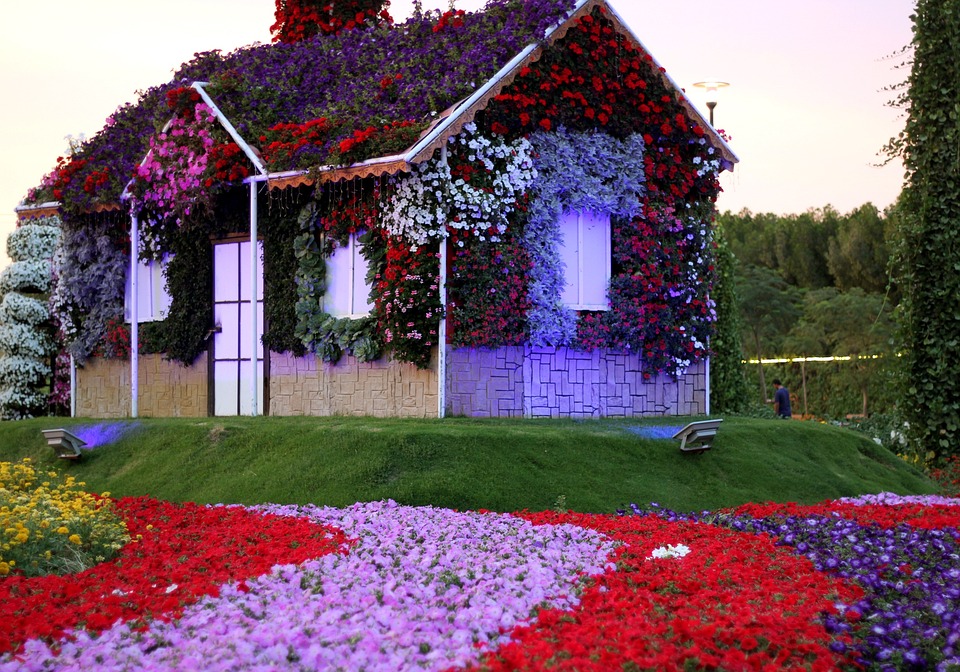All Categories
Featured
Table of Contents
The Role of Organic Gardening in Climate Change Mitigation
Organic gardening is not only beneficial for individuals and communities but also plays a vital role in mitigating the effects of climate change. By adopting organic gardening practices, individuals can contribute to carbon sequestration and reduce their carbon footprint.
One of the key ways organic gardening helps combat climate change is through the use of organic matter in the form of compost and mulch. Composting converts organic waste into nutrient-rich soil amendments, effectively trapping carbon in the soil. This process helps offset greenhouse gas emissions by removing carbon dioxide from the atmosphere and storing it in the soil for an extended period.
In addition to carbon sequestration, organic gardening practices also promote soil health and biodiversity. Healthy soils act as a carbon sink, absorbing and storing carbon. By avoiding the use of synthetic fertilizers and pesticides, organic gardeners encourage the growth of beneficial microorganisms and fungi in the soil, enhancing its ability to capture and store carbon.
Furthermore, organic gardening helps reduce reliance on fossil fuel-intensive agricultural practices. Conventional agriculture relies heavily on fossil fuel-based inputs such as synthetic fertilizers and pesticides, which contribute to greenhouse gas emissions. By minimizing or eliminating the use of these inputs, organic gardeners reduce their carbon footprint and help combat climate change.
Organic gardening also promotes water conservation, another crucial factor in climate change mitigation. By implementing techniques like mulching and responsible irrigation practices, organic gardeners can reduce water usage and minimize the strain on freshwater resources.
Overall, organic gardening offers a holistic and sustainable approach to gardening that aligns with efforts to combat climate change. By adopting these practices, individuals can contribute to carbon sequestration, promote soil health and biodiversity, reduce reliance on fossil fuels, and conserve water. Embracing organic gardening is not only beneficial for the environment but also allows individuals to connect with nature and make a positive impact on the planet.
Related Products:

Embracing Native Plants: Enhancing Biodiversity in Organic Gardens
One of the key principles of organic gardening is to work in harmony with nature, and one of the best ways to do this is by embracing native plants in your garden. Native plants are species that naturally occur in a specific area and have evolved to thrive in the local climate, soil, and ecosystem. By incorporating native plants into your organic garden, you can create a habitat that supports a diverse range of wildlife, including birds, butterflies, and beneficial insects.
Native plants are adapted to local conditions, so they require less maintenance and are more resistant to pests and diseases. They are also well-suited to attract and support native pollinators, such as bees and butterflies, which are crucial for the fertilization of flowers and the production of fruits and vegetables. In addition, native plants provide food and shelter for wildlife, helping to restore and enhance biodiversity in your garden.
When selecting native plants for your organic garden, consider factors such as sun exposure, soil type, and moisture levels. Research which plants are native to your region and choose a variety that will provide year-round interest, with different bloom times, colors, and textures. Native grasses, wildflowers, shrubs, and trees can all be incorporated into your garden to create a beautiful and sustainable landscape.
To ensure the success of your native plantings, it's important to prepare the soil properly and provide adequate water and mulch. By creating a welcoming environment for native plants, you can not only enhance the biodiversity of your garden but also contribute to the conservation of native plant species and the preservation of local ecosystems.
Helpful Links:

Exploring Aquaponics: Merging Fish Farming and Organic Gardening
Aquaponics is a sustainable and innovative system that combines aquaculture (fish farming) with hydroponics (the cultivation of plants in water without soil). This unique merging of two agricultural practices allows for the creation of a self-sufficient and highly productive ecosystem. In an aquaponics system, fish waste provides the nutrients necessary for plant growth, while the plants purify the water for the fish. It's a mutually beneficial relationship that mimics the natural balance found in ecosystems.
One of the key advantages of aquaponics is its efficiency in water usage. Compared to traditional soil-based gardening, aquaponics uses significantly less water, as the water in the system is recirculated and reused. Additionally, the closed-loop system reduces the need for synthetic fertilizers and pesticides, making it an ideal choice for organic gardening.
Aquaponics systems can be set up in various scales, from small-scale home systems to large commercial operations. The versatility of aquaponics makes it applicable in both urban and rural settings, offering a sustainable solution for food production in areas with limited access to arable land.
Furthermore, aquaponics offers a unique opportunity to grow a wide variety of crops, including leafy greens, herbs, and even fruits. The nutrient-rich water provides an optimal environment for plant growth, resulting in faster growth rates and higher yields compared to traditional gardening methods.
By incorporating aquaponics into your organic garden, you can enjoy the benefits of both fish and plant cultivation. Not only will you be able to harvest fresh and organic produce, but you'll also have the opportunity to introduce a thriving aquatic ecosystem into your home or garden. Embracing aquaponics is a fascinating way to merge the worlds of fish farming and organic gardening, creating a harmonious and sustainable environment.
Helpful Links:
Sustainable Landscaping: Natural Ways to Boost Plant Health in Your Organic Garden

Sustainable Landscaping Natural Ways to Boost Plant Health in Your Organic Garden
More about organic gardening: Recommended Reads
Chemical-Free Gardening: How to Water Your Organic Garden for Optimal Growth
Natural Ways to Boost Plant Health in Your Organic Garden
Copyright © 2024 organic gardening - organic gardening All Rights Reserved.
Latest Posts
Customer Speaks: NETGEAR Orbi 970 Series User Reviews
Starting Your Journey with Vinyl Records
Ultimate Guide to Tile Shower Cleaning